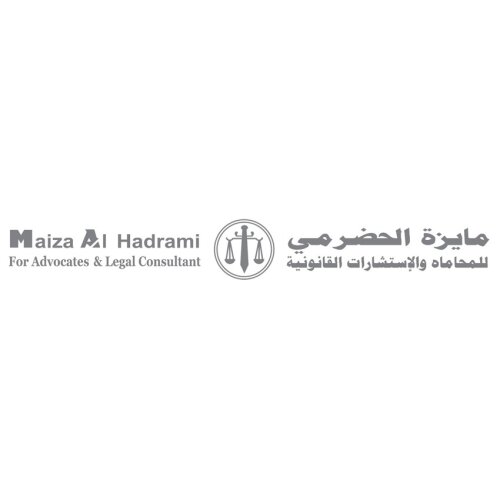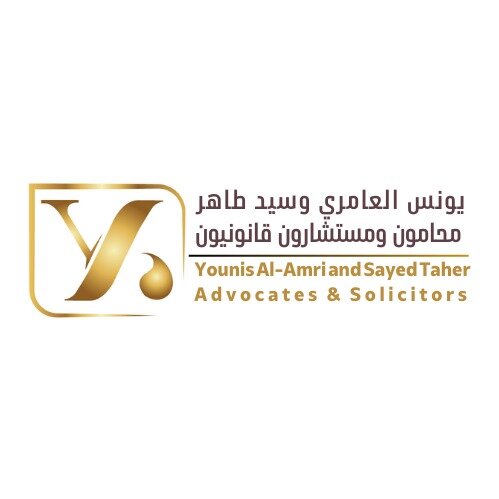Best Conveyancing Lawyers in Oman
Share your needs with us, get contacted by law firms.
Free. Takes 2 min.
Free Guide to Hiring a Real Estate Lawyer
Or refine your search by selecting a city:
List of the best lawyers in Oman
About Conveyancing Law in Oman
Conveyancing in Oman refers to the legal process of transferring property ownership from one person to another. It typically involves the drafting and execution of legal documentation, payment of applicable taxes and fees, and the official registration of the property transfer with relevant authorities. Conveyancing in Oman must comply with specific national and local regulations aimed at ensuring all transactions are clear, fair, and properly recorded to safeguard buyer and seller interests.
Why You May Need a Lawyer
Engaging a lawyer is highly advisable when dealing with conveyancing matters in Oman. Common situations that require legal assistance include:
- Buying or selling property as an individual or corporate entity
- Transferring property between family members
- Ensuring compliance with foreign ownership laws
- Resolving disputes in property boundaries or titles
- Dealing with inherited property or estate transfers
- Securing mortgages or loans over property
- Drafting or reviewing sale and purchase agreements
- Registering property with the Land Registry
Legal professionals can help you navigate the complex process, avoid costly mistakes, ensure all legal requirements are met, and protect your interests throughout the transaction.
Local Laws Overview
Conveyancing transactions in Oman are governed by several laws and regulations. The most relevant include:
- The Land Law (Royal Decree 5/80 and amendments), which outlines property rights, ownership restrictions, and foreign ownership provisions
- Civil Transactions Law, which establishes general principles for contracts, sale, and obligations
- Royal Decree No. 6/89 on the Organization of the Land Register, which prescribes procedures for registration of property and transfer of ownership
- Omani rules permitting expatriates to own property in certain Integrated Tourism Complexes (ITCs)
- Inheritance laws for deceased property holders, which may involve sharia-based rules for Omani nationals
All property transfers must be registered with the Ministry of Housing and Urban Planning. The documentation must include valid title deeds, no objection certificates where required, and full settlement of taxes and fees.
Frequently Asked Questions
What is the first step in a property transaction in Oman?
The process starts with an agreement between the buyer and seller. Both parties will negotiate and sign a preliminary contract, often with the help of a lawyer, before proceeding to obtain relevant approvals and prepare official documentation for registration.
Can foreigners buy property in Oman?
Foreign nationals are only permitted to purchase property in specifically designated areas known as Integrated Tourism Complexes (ITCs). Outside these areas, property is generally reserved for Omani nationals and GCC citizens.
What documents are needed for conveyancing?
The typical documents required include valid title deeds, sale and purchase agreements, identification documents, tax clearance, no objection certificates (if applicable), and proof of payment for all relevant fees.
How is the property registered officially?
Registration takes place at the Directorate General of Housing or the Ministry of Housing and Urban Planning. The transaction is recorded in the official Land Register with payment of prescribed transfer fees and taxes.
Do both the buyer and seller need to be present for registration?
Both parties, or their legally appointed representatives, must typically be present at the registry office to complete the formalities and present documentation for verification and signature.
How are disputes in property boundaries or titles resolved?
Disputes are first addressed through negotiation or mediation between parties. If unresolved, the matter can be brought before the local courts and will require legal representation for a binding decision.
What is the usual duration for completing a property transfer?
The time required depends on the complexity of the transaction, completeness of documentation, and the specific ministry’s procedures. On average, it can take a few weeks to several months.
Are there any taxes or fees to be aware of?
Yes, property transfers are subject to a transfer fee (generally a percentage of the property’s value), administrative charges, and sometimes capital gains tax, depending on the circumstances. These must be settled before the transaction is completed.
Will a lawyer handle all paperwork and official processes?
Yes, a lawyer will draft, review, and verify all legal documents, ensure compliance with regulations, and represent you at the land registry. Their experience helps prevent issues that may delay or invalidate the transfer.
What happens if one party defaults or backs out of the agreement?
If a party fails to meet their obligations, the terms of the sale agreement will typically determine remedies, such as forfeiture of deposit or legal action for compensation. It is essential to have clear terms included in the contract, which a lawyer can ensure.
Additional Resources
For further information and assistance, consider contacting the following resources:
- Ministry of Housing and Urban Planning - primary authority for property registration and regulation
- Omani Bar Association - provides information on qualified legal professionals
- Oman Real Estate Association - industry insights and updates on property law developments
- Municipal offices in your region - for local property and planning regulations
These organizations can provide official guidance, legal referrals, and the latest regulatory updates related to property transactions in Oman.
Next Steps
If you need help with conveyancing in Oman, start by gathering all relevant documents such as identification, proof of ownership, and any existing agreements. Contact a reputable lawyer or law firm experienced in Omani property law to discuss your needs and objectives. Your lawyer will review your case, guide you through the process, prepare and verify all necessary documentation, and represent you in negotiations or at the land registry. Engaging expert legal support can help you complete your property transaction efficiently and with confidence.
Lawzana helps you find the best lawyers and law firms in Oman through a curated and pre-screened list of qualified legal professionals. Our platform offers rankings and detailed profiles of attorneys and law firms, allowing you to compare based on practice areas, including Conveyancing, experience, and client feedback.
Each profile includes a description of the firm's areas of practice, client reviews, team members and partners, year of establishment, spoken languages, office locations, contact information, social media presence, and any published articles or resources. Most firms on our platform speak English and are experienced in both local and international legal matters.
Get a quote from top-rated law firms in Oman — quickly, securely, and without unnecessary hassle.
Disclaimer:
The information provided on this page is for general informational purposes only and does not constitute legal advice. While we strive to ensure the accuracy and relevance of the content, legal information may change over time, and interpretations of the law can vary. You should always consult with a qualified legal professional for advice specific to your situation.
We disclaim all liability for actions taken or not taken based on the content of this page. If you believe any information is incorrect or outdated, please contact us, and we will review and update it where appropriate.
Browse conveyancing law firms by city in Oman
Refine your search by selecting a city.

















